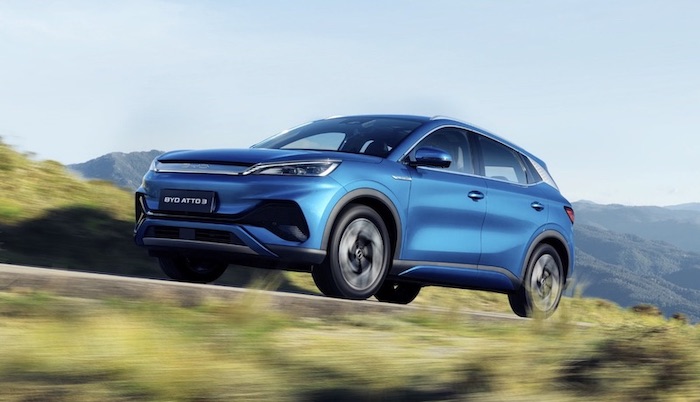Overview
Jeep, though currently owned by the automotive conglomerate Stellantis, is originally an American automotive company. The genesis of the Jeep brand is from the requirement of a vehicle for the Second World War. As they say, the rest is history!
Jeep has had multiple owners to include, American Motors Corporation (AMC) and Chrysler. For those not familiar with the Stellantis group, it was formed in 2021 by merging Fiat Chrysler Automotive (FCA) and the PSA Group. Stellantis N.V. commands an impressive portfolio of automotive brands, to include: Abarth, Alfa Romeo, Citroën, Fiat, Maserati, Peugeot and more!
Jeep has remained true to its original creation, in that, it focuses primarily on the development and sale of sport utility vehicles (SUVs). The company’s current portfolio of electric vehicles (EVs) include:
- The all-electric Avenger
- Renegade plug-in hybrid
- Compass plug-in hybrid
- Grand Cherokee plug-in hybrid
Jeep envisions four battery-electric vehicles (BEVs) by 2025, with only pure electric vehicles from 2030.
Electric Cars: The Basics
For those of you new to zero-emission electric driving, we recommend a read of the following articles:
Sign up to the e-zoomed Electric Living newsletter
The All-Electric Jeep Avenger SUV
Better late than never, may not always hold true, but in the case of Jeep’s entry into the all-electric SUV segment, this certainly holds true. It is not often, that a late entrant has the potential to make a ‘dent’ in a fiercely competitive incumbent market, but early indications are that the Jeep Avenger, the first battery-electric vehicle (BEV) from the automotive manufacturer will do just that!
Since its launch, the pure electric SUV has received a number of accolades, to include, Car of The Year 2023, Best Family SUV, Electric Car of The Year and more! The Avenger, dubbed ‘JJ: Junior Jeep’ at concept stage, was first shown in September 2022, and then also at the Paris Motor Show in October 2022. Interestingly, the name Avenger has been previously used by Chrysler on two occasions.
For families keen on the popular SUV body style, but in a more manageable and compact environmentally-friendly electric vehicle, the Jeep Avenger (B-Segment) is well suited. In fact, the Avenger electric (4.08m) is also the company’s most compact vehicle to date.
Perfect for those families living in towns ands cities. The EV is built on the e-CMP2 modular electric platform. The Avenger has been designed in Europe and is also being built in Europe.
The Avenger has a 54 kWh onboard EV battery (usable capacity: 51 kWh). Not surprising, given the compact dimensions of the electric car. The battery pack consists of 17 modules and 102 cells. The manufacturer claims a zero-tailpipe emission electric range up to 248 miles (WLTP) on a single-charge. For those new to electric driving, follow the link below to learn about the Worldwide Harmonised Light Vehicles Test Procedure.
Even adjusting for real-world driving conditions, the pure electric Avenger should be able to deliver over 200 miles on a single-charge. Certainly more than ample for most day-to-day driving needs, to include, city ands motorway driving.
The EV also incorporates a heat pump as standard, which according to Jeep, ‘increases the range by up to 10% in extreme hot and cold conditions’. It is interesting to note that the all-electric DS3 e-Tense has the same onboard EV battery size (54 kWh), but has a higher claimed electric range (270 miles).
Though some of the more recent electric cars offer DC charging capability up to 350 kW DC, the 100 kW DC charging offered by the electric Avenger is adequate, given the size of the onboard EV battery. The EV can be charged 20% – 80%: 24 minutes at 100 kW DC. Put another way you can top up 24 miles in 5 minutes.
Of course, EVs are mostly charged at home, overnight. We at e-zoomed recommend installing a solar compatible EV charger like myenergi zappi, along with battery storage and an on-site PV system. This ecosystem is an excellent way to leverage the benefits of electric driving: zero-tailpipe emissions and financial savings!
The fully-electric Avenger incorporates a 3-phase 11 kW AC onboard charger as standard. For those with access to three-phase EV charging, the EV can be fully charged in 5 hours and 30 minutes. Single-phase EV charging will take 7 hours and 30 minutes.
Though the electric Avenger is only available as a front-wheel drive (FWD), it is the first FWD from the manufacturer to be equipped with Select-Terrain and Hill Descent Control, giving the EV some off-road capability (200mm ground clearance, approach angle: 20 degrees, departure angle: 32 degrees). Given that the primary market for the e-SUV is not off-road use, the front-wheel drive is adequate!
The electric SUV can achieve 0-62 mph in 9 seconds (maximum power: 156 hp/ torque: 260 Nm). The top speed of the EV is 93 mph. There are three driving modes: Normal, Eco, Sport. The EV offers regenerative braking, but not one-pedal driving.
Safety ADAS features available as either standard, or as options are: blind spot monitoring, autonomous emergency braking, automatic parking, 180-degree rear camera with drone view, level-2 autonomy and more! The e-SUV has yet to be certified by Euro NCAP. Other technology includes: Android Auto and Apple Car Play, 10.25’’ Uconnect™ system, 10.25″ digital cluster and more!
In terms of exterior styling, the Avenger electric is instantly recognisable as a Jeep, except for styling changes suitable for a battery-electric vehicles (BEVs). The EV has an appealing exterior and a good balance between a traditional and futuristic look. The styling of the interior echoes the exterior colour on the dashboard. Certainly attractive.
The five-seat five-door compact SUV offers ample legroom and headroom, but for taller adults seated at the back, expect a squeeze. The middle seat is also a squeeze. The EV offers physical controls for climate control, which is most welcome! The EV offers a 355 L boot, not as large as some of its rivals. The EV does not offer a frunk.
The EV is suitable for both families and company-car drivers. Company-car drivers can take advantage of the lower Benefit-in-Kind (BiK) tax rate for electric cars. Bottom-line, electric driving is good for the environment and the wallet! You can lease electric cars via e-zoomed at fantastic prices.
| PROS | CONS |
|---|---|
| Compact and good turning circle | Does not incorporate one-pedal driving |
| 11 kW AC onboard charger as standard | Only available as a front-wheel drive (FWD) |
| Heat pump as standard | DC charging limited to 100 kW DC |
The All-Electric Jeep Avenger SUV (credit: Jeep)
| At A Glance | |
|---|---|
| EV Type: | Battery-Electric Vehicle (BEV) |
| Body Type: | SUV |
| Plug-In Car Grant (PiCG): | Not Available |
| Engine: | Electric |
| Available In UK: | Yes |
| Variants (3 Options) |
|---|
| Jeep Avenger LONGITUDE (from £35,700) |
| Jeep Avenger ALTITUDE (from £37,400) |
| Jeep Avenger SUMMIT (from £39,600) |
| EV Battery & Emissions | |
|---|---|
| EV Battery Type: | Lithium-ion |
| EV Battery Capacity: | Available in one battery size: 54 kWh |
| Charging: | 100 kW DC charging (20%-80%: 24 mins). Onboard charger: 7.4 kW Standard (0%-100%: 7 hrs 30 mins)/ 11kW AC (0%-100%: 5 hrs 30 mins) |
| Charge Port: | Type 2 |
| EV Cable Type: | Type 2 |
| Tailpipe Emissions: | 0g (CO2/km) |
| EV Battery Warranty: | 8 years or 100,000 miles |
| Average Cost Of Residential Charging | |
|---|---|
| Battery net capacity : 16.7 kWh | £2.40 |
| Battery net capacity : 30.0 kWh | £4.32 |
| Battery net capacity : 39.2 kWh | £5.64 |
| Battery net capacity : 45.0 kWh | £6.48 |
| Battery net capacity : 50.0 kWh | £7.20 |
| Battery net capacity : 64.0 kWh | £9.22 |
| Battery net capacity : 71.0 kWh | £10.22 |
| Battery net capacity : 77.0 kWh | £11.09 |
| Battery net capacity : 90.0 kWh | £12.96 |
| Battery net capacity : 100.0 kWh | £14.40 |
- Note 1: The average cost of residential electricity in the UK varies depending on the region, supplier and type of energy used. An average for the UK is 14.40 p/kWh.
- Note 2: Not all EV manufactures make available the data on net EV battery capacity, and in a number of instances the EV battery capacity advertised, does not state if it is gross or net capacity. In general, usable EV battery capacity is between 85% to 95% of the gross available capacity.
| Charging Times (Overview) | |
|---|---|
| Slow charging AC (3 kW – 3.6 kW): | 6 – 12 hours (dependent on size of EV battery & SOC) |
| Fast charging AC (7 kW – 22 kW): | 3 – 8 hours (dependent on size of EV battery & SoC) |
| Rapid charging AC (43 kW): | 0-80%: 20 mins to 60 mins (dependent on size of EV battery & SoC) |
| Rapid charging DC (50 kW+): | 0-80%: 20 mins to 60 mins (dependent on size of EV battery & SoC) |
| Ultra rapid charging DC (150 kW+): | 0-80% : 20 mins to 40 mins (dependent on size of EV battery & SoC) |
| Tesla Supercharger (120 kW – 250 kW): | 0-80%: up to 25 mins (dependent on size of EV battery & SoC) |
- Note 1: SoC: state of charge
| Dimensions | |
|---|---|
| Height (mm): | 1530 |
| Width (mm): | 1780 |
| Length (mm): | 4080 |
| Wheelbase (mm): | 2560 |
| Turning Circle (m): | 10.5 |
| Boot Space (L): | 355 |
| Avenger Electric | |
|---|---|
| EV Battery Capacity: | 54 kWh |
| Pure Electric Range (WLTP): | 248 miles |
| Electric Energy Consumption (kWh/100km): | 15.4 – 15.7 |
| Charging: | 100 kW DC charging (20%-80%: 24 mins). Onboard charger: 7.4 kW Standard (0%-100%: 7 hrs 30 mins)/ 11kW AC (0%-100%: 5 hrs 30 mins) |
| Top Speed: | 93 mph |
| 0-62 mph: | 9 seconds |
| Drive: | Front-wheel drive (FWD) |
| Electric Motor (kW): | 115 |
| Horsepower (hp): | 156 |
| Torque (Nm): | 260 |
| Transmission: | Automatic |
| Seats: | 5 |
| Doors: | 5 |
| Unladen Weight (kg): | 1,500 |
| Colours: | 7 |
| NCAP Safety Rating: | N/A |
While e-zoomed uses reasonable efforts to provide accurate and up-to-date information, some of the information provided is gathered from third parties and has not been independently verified by e-zoomed. While the information from the third party sources is believed to be reliable, no warranty, express or implied, is made by e-zoomed regarding the accuracy, adequacy, completeness, legality, reliability or usefulness of any information. This disclaimer applies to both isolated and aggregate uses of this information.










































